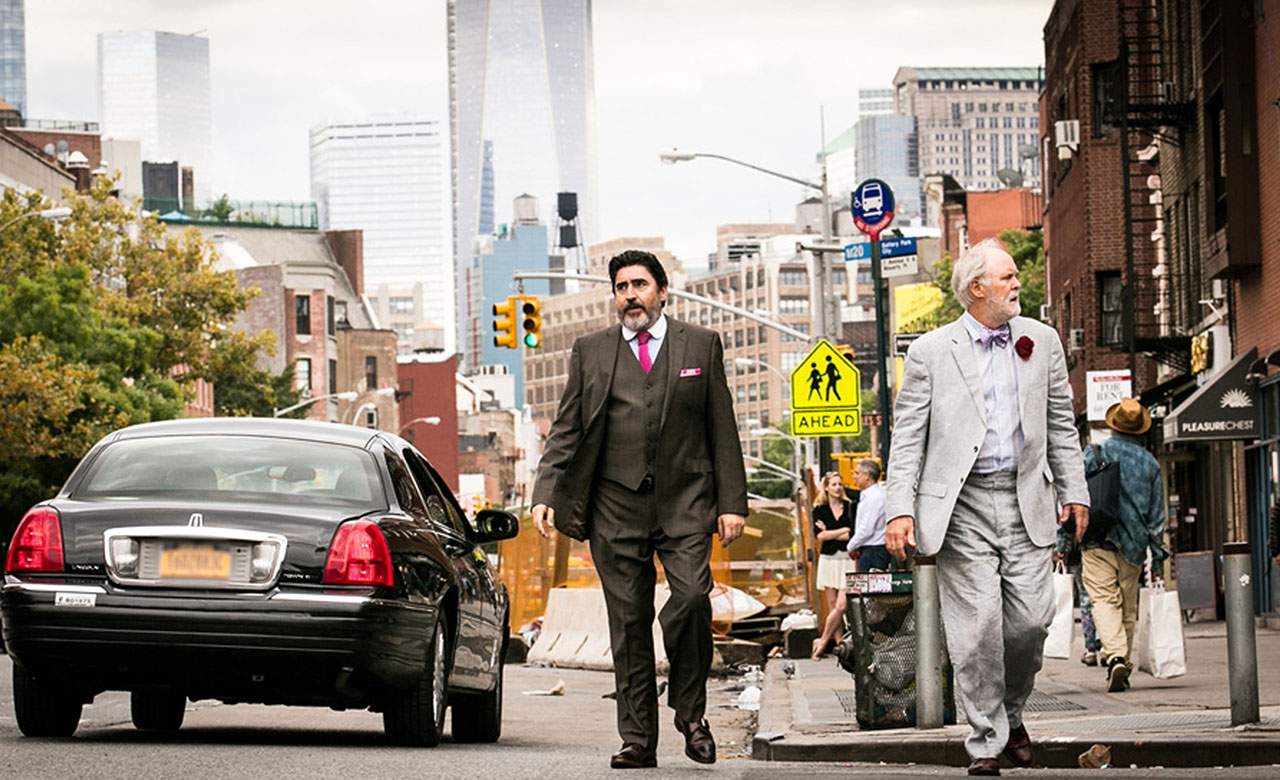Love Is Strange
John Lithgow and Alfred Molina play newlyweds who have their love tested in an unequal world.
Overview
Love: it’s not about the big stuff. Helping someone find their glasses, squeezing their hand when they’re getting ready for a tough situation and sharing stories of mundane days are what matters, rather than grand gestures. Most movies prefer the latter, selling the fairytale rather than reality. Love Is Strange lingers in little things because it is not most movies, for better and for worse.
What the latest film from writer/director Ira Sachs (Keep the Lights On) is instead is a gentle portrait of a strong romance in a sticky situation. It’s a slow effort that meanders through a series of unfortunate but not outlandish nor appalling turns — and a gradual revelation of moments that don’t test the bond of just-wed couple of 39 years George (Alfred Molina) and Ben (John Lithgow) but do try their patience.
When George and Ben finally get married, their happy times are short-lived. A music teacher at a Catholic school, George loses his job because of his marital status, but Ben’s pension isn’t enough for them to live on. Forced to sell their New York apartment, they stay separately with friends and relatives as they wait to get back on their feet. From then on, their time together is rare, precious and all-too fleeting.
Their frustrations become evident as George battles with the partying lifestyle of his young cop hosts (Cheyenne Jackson and Manny Perez), and Ben begins to feel unwanted bunking in with the teenage son (Charlie Tahan) of his filmmaker nephew (Darren Burrows) and stay-at-home writer wife (Marisa Tomei). And for all the film’s elegant imagery, artfully picked shots and evocative Chopin score, their frustrations also become the viewer’s.
There’s a difference between yearning and mournful, just as there are shades of grey in domestic drama. The issues Love Is Strange ponders are certainly thoughtful inclusions, such as the intertwining of identities in a relationship, the impact of ageing and the limits of privacy and generosity among friends; however, they’re not deserving of the mood of heart-wrenching tragedy the film presents more often than not.
Love Is Strange also struggles in its strongest area: casting. That’s a big call for a movie easily improved by the work of its wonderful leading men, but an apt comment when it strands its strongest elements apart for the bulk of its duration. Molina and Lithgow create subtle, lived-in characters and convey a realistic long-term relationship, their performances always the right kind of earnest. It is their chemistry that enhances the ambling material, and the film — like the lovers they portray — feels every second of their absence.
Of course, that’s the point of the story, albeit an unsatisfying way to get it across. Perhaps the title really does say it all: Love Is Strange, and so are small, sweet and slight movies valiantly yet not always effectively trying to capture the importance of connection in the finer details rather than bold statements.





